40 treasury zero coupon bond
What is a Zero-Coupon Bond? - Realonomics The Zero Coupon bonds eliminate the reinvestment risk. Zero-Coupon bonds do not let any periodic coupon payments, and hence a fixed interest on Zero Coupon bonds is guaranteed. Fixed returns: The Zero Coupon bond is a perfect choice for those who prefer long-term investment and earn a lump sum. Zero-Coupon Bond Definition - Investopedia A zero-coupon bond is a debt security instrument that does not pay interest. Zero-coupon bonds trade at deep discounts, offering full face value (par) profits at maturity. The difference between...
US Treasury Bonds - Fidelity The coupon rate is fixed at the time of issuance and is paid every six months. Other Treasury securities, such as Treasury bills (which have maturities of one year or less) or zero-coupon bonds, do not pay a regular coupon. Instead, they are sold at a discount to their face (or par) value; investors receive the full face value at maturity.
Treasury zero coupon bond
Advantages and Risks of Zero Coupon Treasury Bonds Zero-coupon U.S. Treasury bonds are also known as Treasury zeros, and they often rise dramatically in price when stock prices fall. Zero-coupon U.S. Treasury bonds can move up significantly when... Zero-Coupon Bond - Definition, How It Works, Formula It is also called a pure discount bond or deep discount bond. U.S. Treasury bills are an example of a zero-coupon bond. Summary A zero-coupon bond is a bond that pays no interest. The bond trades at a discount to its face value. Reinvestment risk is not relevant for zero-coupon bonds, but interest rate risk is relevant for the bonds. Institutional - STRIPS - TreasuryDirect When a Treasury fixed-principal note or bond or a Treasury inflation-protected security (TIPS) is stripped through the commercial book-entry system each interest payment and the principal payment becomes a separate zero-coupon security. Each component has its own identifying number and can be held or traded separately.
Treasury zero coupon bond. 25+ Year Zero Coupon U.S. Treasury Index Exchange-Traded Fund 25+ Year Zero Coupon U.S. Treasury Index Exchange-Traded Fund Share ADD PRINT SUBSCRIBE US Treasury Sector 2.26% distribution yield As of 06/30/2022 2.52% 30-day sec yield As of 08/03/2022 -24.62% nav ytd return As of 08/03/2022 -24.32% MARKET PRICE YTD RETURN As of 08/03/2022 Overview Fees & Expenses Yields & Distributions Prices & Performance Zero-coupon bond - Wikipedia A zero coupon bond (also discount bond or deep discount bond) is a bond in which the face value is repaid at the time of maturity. [1] That definition assumes a positive time value of money. It does not make periodic interest payments or have so-called coupons, hence the term zero coupon bond. US Treasury Zero-Coupon Yield Curve - NASDAQ US Treasury Zero-Coupon Yield Curve From the data product: US Federal Reserve Data Releases (60,686 datasets) Refreshed 2 days ago, on 5 Aug 2022 Frequency daily Description These yield curves are... Individual - Treasury Bonds: Rates & Terms Treasury Bonds: Rates & Terms . Treasury bonds are issued in terms of 20 years and 30 years and are offered in multiples of $100. Price and Interest. The price and interest rate of a bond are determined at auction. ... Interest Coupon Rate Price Explanation; Discount (price below par) 30-year bond Issue Date: 8/15/2005: 4.35%: 4.25%: 98.333317:
The One-Minute Guide to Zero Coupon Bonds | FINRA.org Instead of getting interest payments, with a zero you buy the bond at a discount from the face value of the bond, and are paid the face amount when the bond matures. For example, you might pay $3,500 to purchase a 20-year zero-coupon bond with a face value of $10,000. After 20 years, the issuer of the bond pays you $10,000. Understanding Zero Coupon Bonds - Part One - The Balance Zero coupon bonds generally come in maturities from one to 40 years. The U.S. Treasury issues range from six months to 30 years and are the most popular ones, along with municipalities and corporations. 1 Here are some general characteristics of zero coupon bonds: Issued at deep discount and redeemed at full face value Treasury Coupon Issues | U.S. Department of the Treasury Nominal TNC Data TNC Treasury Yield Curve Spot Rates, Monthly Average: 1976-1977TNC Treasury Yield Curve Spot Rates, Monthly Average: 1978-1982TNC Treasury Yield Curve Spot Rates, Monthly Average: 1983-1987TNC Treasury Yield Curve Spot Rates, Monthly Average: 1988-1992TNC Treasury Yield Curve Spot Rates, Monthly Average: 1993-1997TNC Treasury Yield Curve Spot Rates, Monthly Average: 1998 ... Treasury Coupon Issues and Corporate Bond Yield Curves Treasury Coupon Issues Learn about the Treasury Yield Curves for Nominal and Real Coupon Issues (TNC and TRC yield curves) and The Treasury Breakeven Inflation Curve (TBI curve). Corporate Bond Yield Curve Papers and Data Learn about the corporate bond yield curve, and how it relates to the Pension Protection Act, by downloading these papers.
Government - Continued Treasury Zero Coupon Spot Rates* 3.20. 3.38. 3.79. *Four quarters covering calendar year 2012 and the first and second quarters of calendar year 2013 prepared by Economic Policy (EP) using the Office of the Comptroller of the Currency (OCC) legacy model. Legacy model quarterly rates can be viewed within the "Selected Asset and Liability Price Report" under "Spot (Zero ... Zero-Coupon Bond: Formula and Excel Calculator Zero-coupon bonds are often perceived as long-term investments, although one of the most common examples is a "T-Bill," a short-term investment. U.S. Treasury Bills (or T-Bills) are short-term zero-coupon bonds (< 1 year) issued by the U.S. government. Zero-Coupon Bond Price Formula How to Buy Zero Coupon Bonds | Finance - Zacks Zero coupon bonds are issued by the Treasury Department, corporations and municipalities. The bonds are considered a low-risk investment compared to stocks, commodities and derivatives. Purchase... Zero Coupon Treasury Bonds (STRIPS) - Financial Web Zero coupon bonds are essentially the same product as all Treasury bonds, but they are paid out in a different manner. Essentially, instead of receiving the interest payments on the bond during the life of the bond, which is typical, the investor will receive the payment in full when the bond matures. This creates a product different from ...
What are US "Treasury zeros" (STRIPS)? - Pecunica™ Zero-coupon notes and bonds are not issued by the US Treasury.. Instead, "Treasury zeros " are created by financial institutions and government securities brokers and dealers through the Treasury's STRIPS program.. Separate Trading of Registered Interest and Principal of Securities (STRIPS) are synthetic zero-coupon securities that are produced by separating the interest components (TINT ...
How to Calculate Yield to Maturity of a Zero-Coupon Bond Consider a $1,000 zero-coupon bond that has two years until maturity. The bond is currently valued at $925, the price at which it could be purchased today. The formula would look as follows: \begin...
Zero Coupon Bond | Investor.gov Zero coupon bonds are bonds that do not pay interest during the life of the bonds. Instead, investors buy zero coupon bonds at a deep discount from their face value, which is the amount the investor will receive when the bond "matures" or comes due.
Institutional - STRIPS - TreasuryDirect When a Treasury fixed-principal note or bond or a Treasury inflation-protected security (TIPS) is stripped through the commercial book-entry system each interest payment and the principal payment becomes a separate zero-coupon security. Each component has its own identifying number and can be held or traded separately.
Zero-Coupon Bond - Definition, How It Works, Formula It is also called a pure discount bond or deep discount bond. U.S. Treasury bills are an example of a zero-coupon bond. Summary A zero-coupon bond is a bond that pays no interest. The bond trades at a discount to its face value. Reinvestment risk is not relevant for zero-coupon bonds, but interest rate risk is relevant for the bonds.
Advantages and Risks of Zero Coupon Treasury Bonds Zero-coupon U.S. Treasury bonds are also known as Treasury zeros, and they often rise dramatically in price when stock prices fall. Zero-coupon U.S. Treasury bonds can move up significantly when...
.jpg/220px-1969_%24100K_Treasury_Bill_(front).jpg)


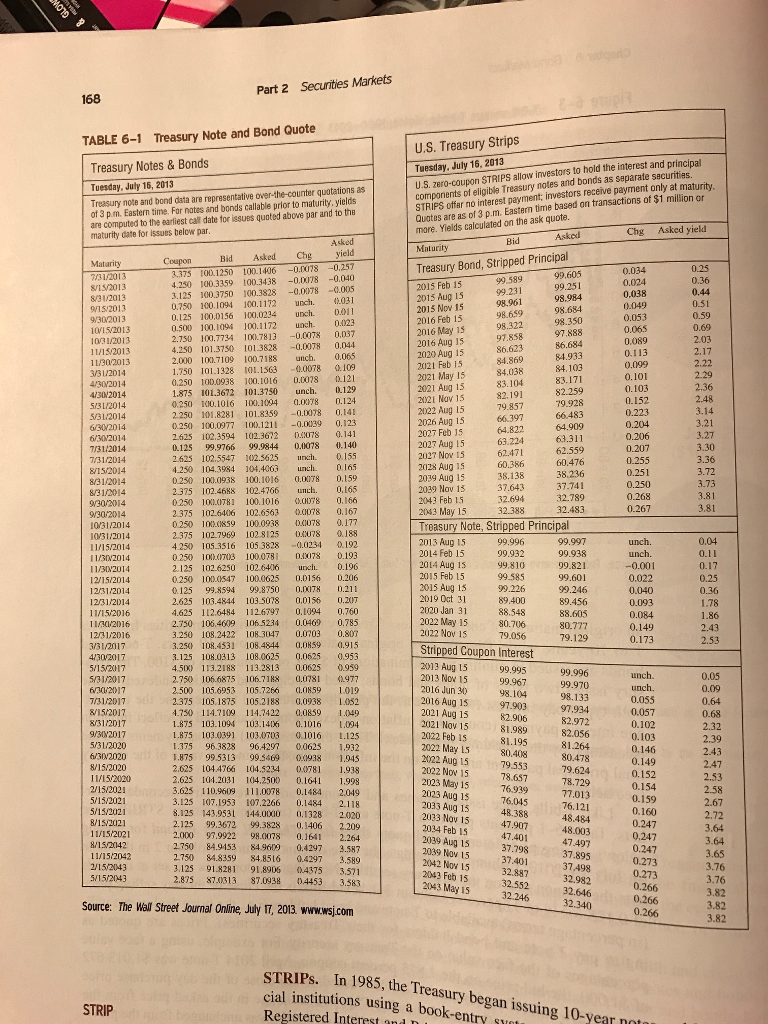


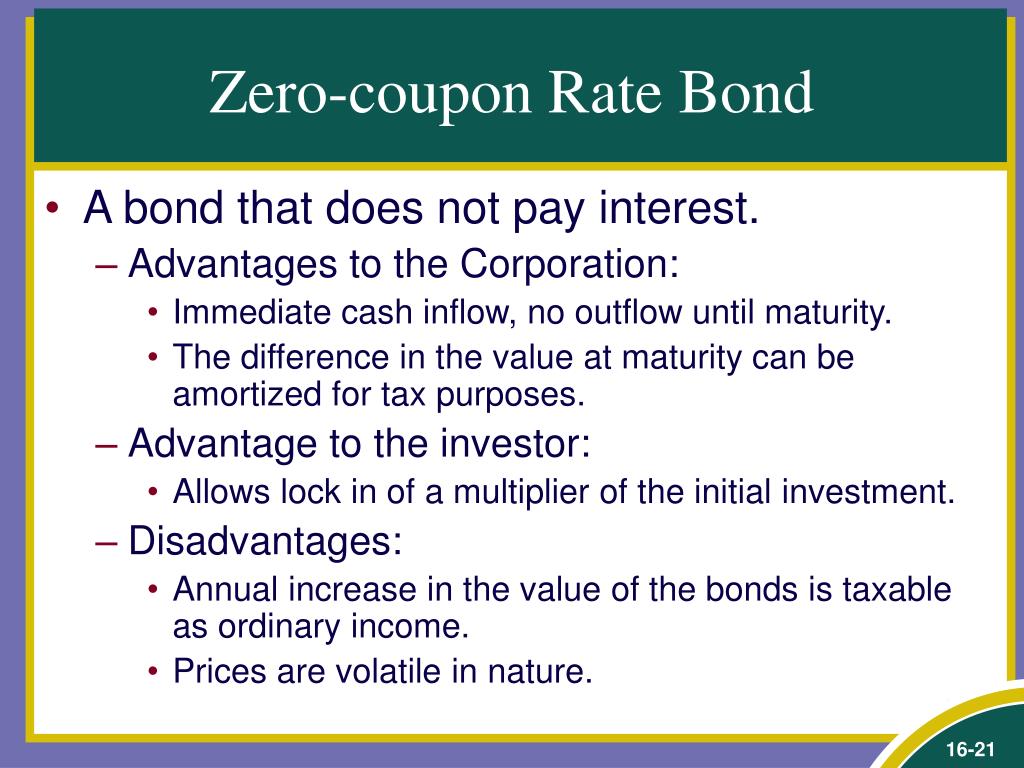
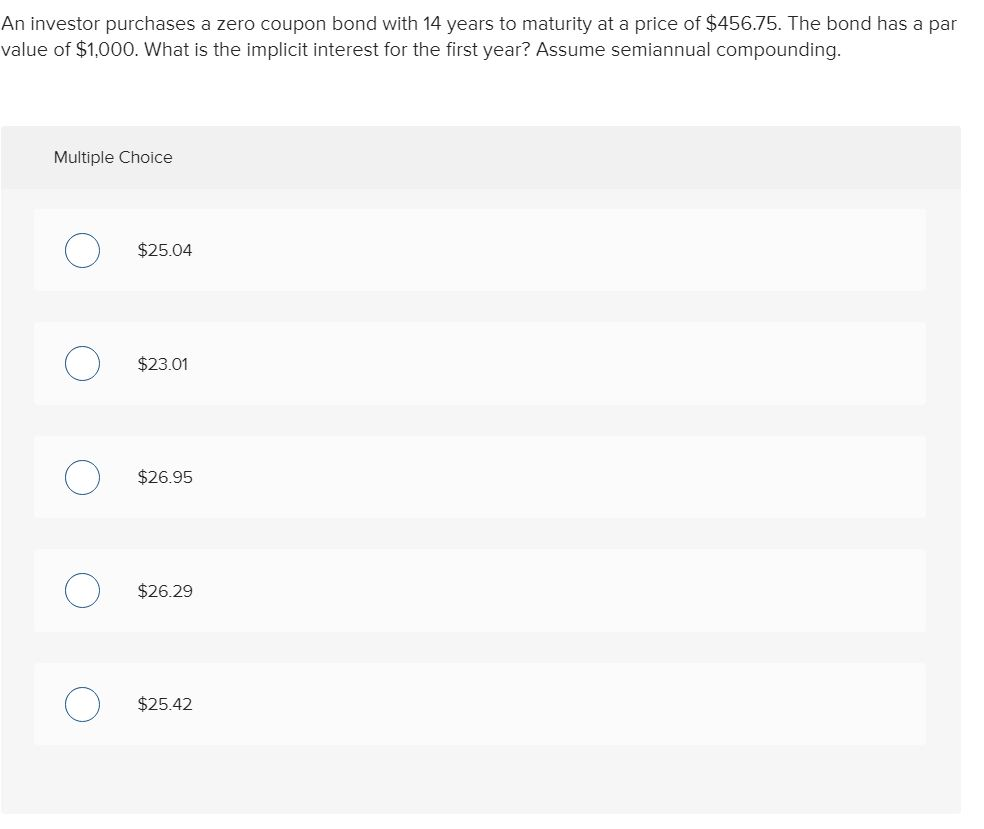


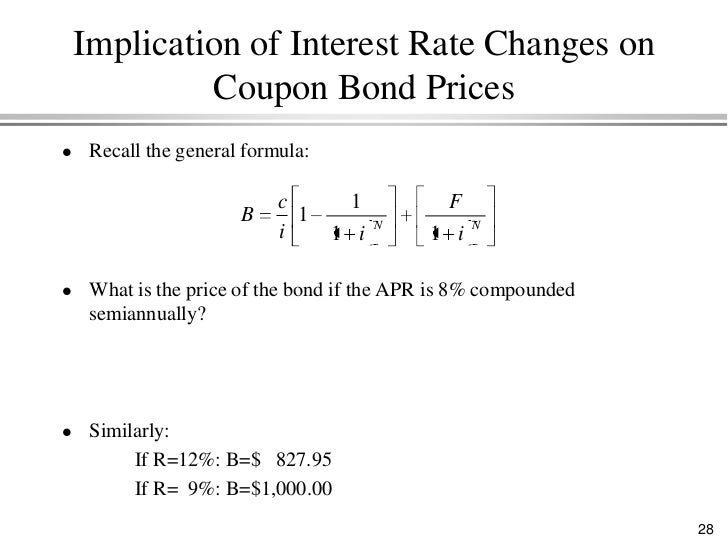


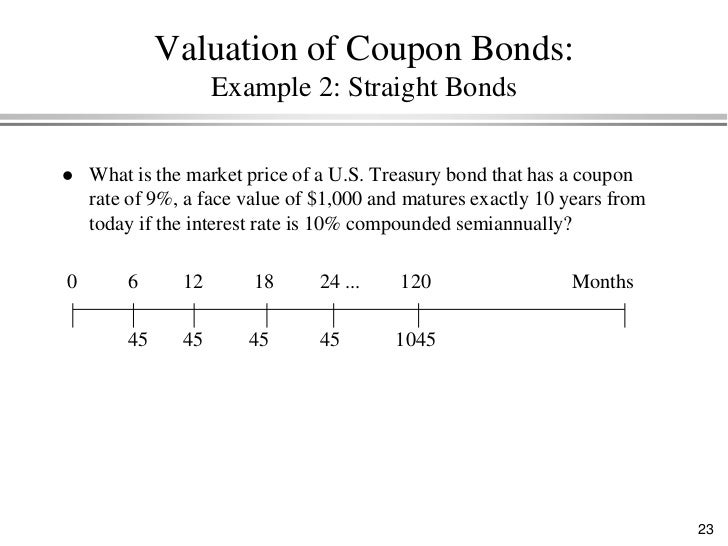


Post a Comment for "40 treasury zero coupon bond"